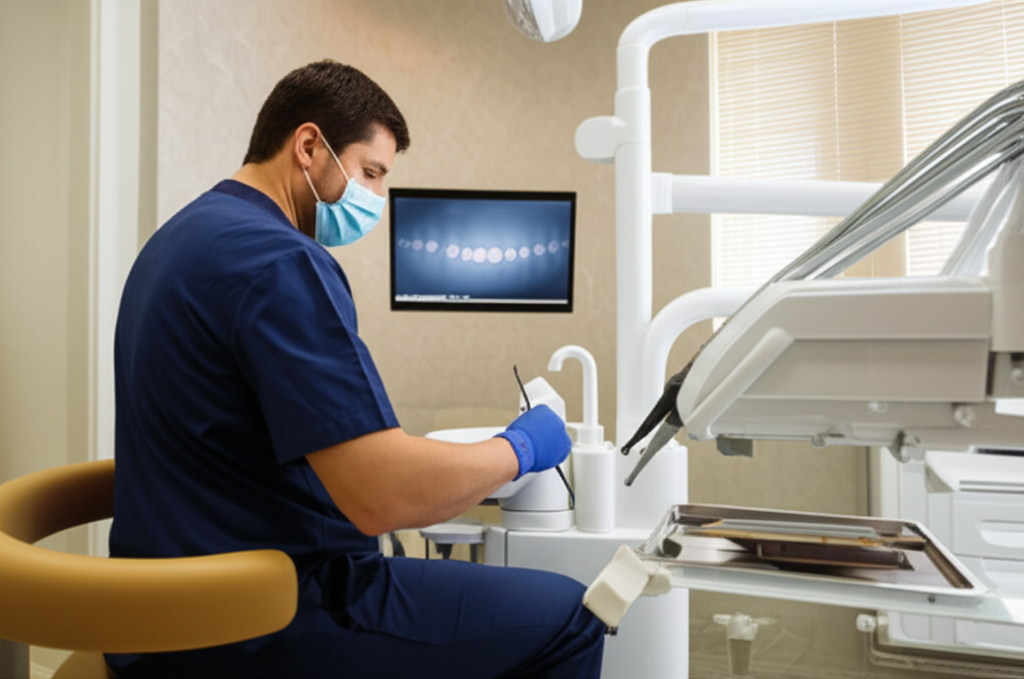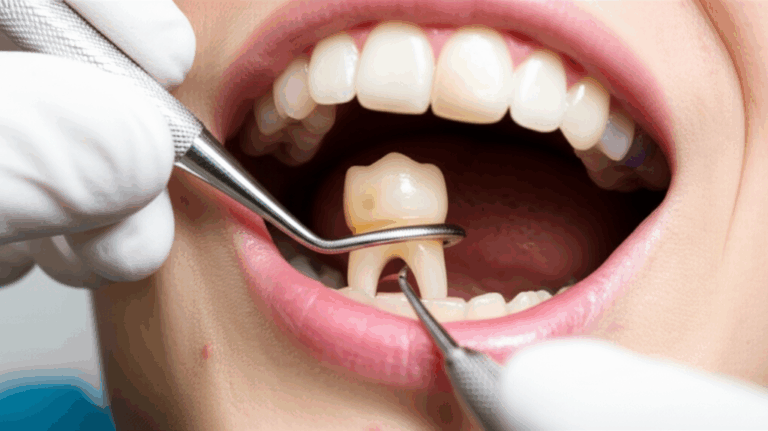
What Is the Highest Paid Dentist? A Deep Dive into Dental Specializations and Earnings
Ever wonder, “Which dentist makes the most money?” I get this question a lot—sometimes from people thinking about a career in dentistry, and sometimes from patients surprised to learn dentists don’t all earn the same. Whether you’re planning your future in the dental field or just curious about the money side of things, this article breaks it down with simple facts, real examples, and what it means for everyone in the dental world.
In This Article
- The Top-Earning Dental Specialties: Who Makes the Most?
- Key Factors That Affect Dentist Salaries (Besides Specialty)
- Average General Dentist Pay: The Starting Point
- Is Dentistry a Good Career for Making Money?
- Popular Questions About Dentist Pay
The Top-Earning Dental Specialties: Who Makes the Most?
Not all dentists get the same paycheck. Your specialty—the type of dentist you become—makes a big difference in how much you can earn. Just like doctors, some dental specialties pay much more than others. Let’s take a look at the best-paid kinds of dentists and what they do.
Oral and Maxillofacial Surgeons (OMFS): The Top Earners
What Do They Do?
Oral and maxillofacial surgeons are the dentists who do surgeries. They take out impacted wisdom teeth, fix broken jaws, put in dental implants, treat injuries to the face, and sometimes even handle tumors. They’re the ones your regular dentist sends you to when things get tricky with your mouth or jaws.
Why Do They Get Paid the Most?
This specialty takes a lot more school after dental school—usually 4 to 6 extra years training in a hospital. Many even get an extra medical degree along the way. They learn how to use anesthesia, work in hospitals, and handle emergencies—skills that aren’t common and are highly needed.
Because they do tough surgeries and handle emergencies, OMFS get paid a lot. Hospitals and clinics trust them to do the hardest work.
How Much Do They Make?
- Average Yearly Pay: $300,000–$600,000+
- Who Pays? Both private offices and hospitals can offer these amounts.
- Example: In big cities, some oral surgeons even make over $750,000 a year, especially if they work at hospitals and own their own practice too.
Orthodontists: The Smile Makers
What Do They Do?
Orthodontists help straighten teeth with braces and clear aligners. They work on both kids and adults, and those “before and after” smile photos are always popular.
Why Are They Paid Well?
Everybody wants straight teeth, so orthodontists are always in demand. Their treatments last several months or years, and patients keep coming back for check-ups, which means steady money coming in.
Their Pay
- Average Yearly Pay: $200,000–$350,000
- Note: Orthodontists who own their office can earn more, but also take more risks as a business owner.
Endodontists: The Root Canal Pros
What Do They Do?
If you ever needed a root canal, you saw an endodontist. They treat problems deep in the tooth, get rid of pain, and save teeth.
Why Do They Make Good Money?
Tooth pain can’t wait, so general dentists quickly send hard cases to endodontists. They do very detailed work, often using a microscope. People will pay a lot just to stop tooth pain.
The Numbers
- Average Yearly Pay: $200,000–$320,000
- Bonus: Offices that get lots of referrals earn even more.
Periodontists: The Gum Doctors
What Do They Do?
If teeth are flowers, periodontists care for the dirt—the gums and bone that hold teeth in. They prevent and treat gum disease and put in dental implants.
Why They Earn Well
Gum disease is common and needs ongoing care. Periodontists also place many implants, which cost a lot.
Salary Stats
- Average Yearly Pay: $180,000–$300,000
- Location: Big cities and rich areas can push pay even higher because more people want implants.
Prosthodontists: The Tooth Builders
What Do They Do?
Prosthodontists fix your smile with crowns, bridges, dentures, and even rebuild whole mouths. If you’re missing teeth or want your smile fixed right, you see one of these dentists.
Why Do They Get Paid Well?
They handle big, tough cases that other dentists don’t want to do. Their work is detailed and often helps both how your teeth look and work.
Money Matters
- Average Yearly Pay: $180,000–$300,000
- Practice Owners: Working with a good dental ceramics lab or crown and bridge lab can boost how much they make.
What About Pediatric Dentists?
Don’t forget the dentists for kids! Pediatric dentists make between $170,000–$280,000 a year. They mostly see children and families, have fewer emergencies, and their offices are often friendly places to work.
Quick Comparison Table
| Specialty | Salary Range (USD) | Training Needed After Dental School |
|---|---|---|
| Oral & Maxillofacial Surgeons | $300k–$600k+ | 4–6 years, sometimes MD too |
| Orthodontists | $200k–$350k | 2–3 years |
| Endodontists | $200k–$320k | 2–3 years |
| Periodontists | $180k–$300k | 2–3 years |
| Prosthodontists | $180k–$300k | 2–3 years |
| Pediatric Dentists | $170k–$280k | 2–3 years |
| General Dentist (Experienced) | $150k–$250k | None |
Key Factors That Affect Dentist Salaries (Besides Specialty)
You might ask, “Does where a dentist works or how they practice matter too?” For sure! Your specialty sets your possible pay, but other things matter too.
Years of Experience
Just starting out, most dentists make less ($100,000–$150,000). After about five years, pay goes up as they get better known. Dentists who own their practice and build a strong name can earn lots more.
Where You Work
Just like a pizza costs more in New York City than in a small town, dentist pay depends on the place and what people can afford.
- Big Cities: Places like New York and California pay more—up to 25% above average.
- Small Towns: Fewer dentists mean more patients to see, and some places pay extra to get dentists to move there.
Type of Practice: Owner or Employee
Own Your Own Office
- Can Make: $200,000–$400,000+
- Why? You set the rules, but also take on the risks of running a business. Working with a trusted china dental lab or good team can help you earn more.
Work for Someone Else
- Pay: $120,000–$200,000
- What’s Good: Less risk and steady pay, but not as much room to earn big bucks.
Corporate Dentistry
- How It Works: Steady money and benefits, but usually not the highest pay.
Teaching or Public Health
- Pay: Usually less ($90,000–$180,000), but better job security and a nice work-life balance.
More Education and Board Certification
Getting more degrees or special training means you can make more money. People trust you more, and you can charge for your extra skills.
Offering More Services as a General Dentist
Don’t want more school? No problem. General dentists can make more by learning things like placing implants or straightening teeth, making them more valuable to the community.
Average General Dentist Pay: The Starting Point
Not everyone wants to spend extra years in school. Many people do well as general dentists, enjoying different kinds of work and building loyal patients.
What Do General Dentists Make?
- Starting Out: $100,000–$150,000 (usually as an employee)
- With Experience: $150,000–$250,000
- Practice Owners: With good management, smart use of technology like a 3d dental lab, or working with an emax dental lab, owners can go up to $200,000–$400,000+ per year.
How Can They Make More?
- Learn New Skills: Do things like implants or cosmetics.
- Build a Great Team: Hygienists and assistants help see more patients.
- Good Reputation: Happy patients tell their friends and bring in more business.
Is Dentistry a Good Career for Making Money?
Here’s the truth: dental school costs a lot, and student loans can take years to pay off. But lots of dentists find it’s a good investment, especially if they pick a high-earning specialty or run their own business.
Is It Worth It?
Job Market
- Always Needed: People need dental care as they grow older, and more want nice-looking teeth.
- Low Unemployment: The Bureau of Labor Statistics says dentist jobs stay in high demand.
- Growth: Especially for specialists like oral surgeons and orthodontists, jobs are expected to grow 5–8% in the coming years.
Paying Off the Investment
- General Dentists: It usually takes 6–10 years to pay off school debt.
- Specialists: More schooling means more loans, but also bigger paychecks.
Non-Money Reasons
Dentists often enjoy helping people and making a difference in their community, not just earning a paycheck.
Popular Questions About Dentist Pay
Do General Dentists Make Good Money?
Yes! The average is $150,000–$250,000, and owners or those who learn more skills can make even more.
What’s the Hardest Dental Specialty to Get Into?
Most say Oral and Maxillofacial Surgery is the toughest. It needs the most training and is very competitive. Orthodontics and Endodontics are also hard to get into.
How Long Does It Take to Become a Dentist?
In the U.S., dental school is 4 years after college. Specialties add 2–6 more years. So, being a specialist can take eight to twelve years in total.
Can General Dentists Make More Money Without Specializing?
Definitely. General dentists can:
- Learn More Skills: Implants, braces, and more.
- Own a Practice: Running your own office usually means more money.
- Keep Learning: Stay up-to-date with new ways to treat patients.
What Else Affects How Much Dentists Make?
- Location (big city or small town)
- Your reputation
- Who your patients are
- How you bill (insurance vs. pay-as-you-go)
Your Healthy Takeaway: Key Points on Dental Earnings
Here are the main points, so you’re set whether you dream of being a dentist, or just want to know who’s making what:
Key Points:
- Oral and Maxillofacial Surgeons are the highest paid: $300,000–$600,000+
- Other specialists like Orthodontists, Endodontists, Periodontists, and Prosthodontists make $180,000–$350,000.
- General dentists earn $150,000–$250,000, with more possible if they own their office.
- More training and experience help you earn more.
- Where and how you practice can raise or lower your pay.
- Loving your job and good business sense matter for long-term success.
What Should You Do Next?
If you’re thinking about dentistry:
- Research different specialties and balance extra years in school against higher pay.
- Talk to dentists and specialists. Most will share what it’s really like.
- Figure out your return on investment by looking at tuition, years of school, and future pay.
For patients, knowing your dentist’s specialty helps you pick the best care. And for wannabe practice owners, building good relationships with dental labs (like a removable denture lab) and specialists can help your business grow.
Want more details? Check out guides about dental implants, veneers, and other treatments.
Remember: Whether you’re aiming for a great dental career, or just want to understand dentist pay—what counts most is finding a specialty or job that excites you and lets you help others, while earning what you deserve.
Smile big and go after your best future—wherever it leads!








